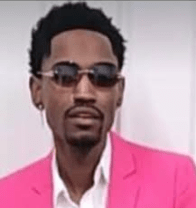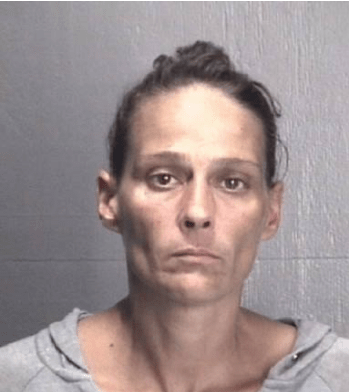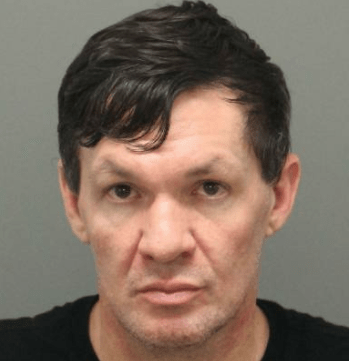They include difficulty of securing accurate intelligence, and the unpredictability of events. Why was Nazi Field Marshal Paulus on the Soviet payroll, Tough love: How street children were treated in the Soviet Union, The reluctant hero: How a Soviet officer single-handedly prevented WWIII, 'He was a bad shooter': Lee Harvey Oswalds life in the USSR. It was the height of the Cuban missile crisis, which began earlier that month . The George Washington University Two years later he graduated from the Caspian Higher Naval School, serving in the Black Sea and Baltic submarine fleets - just in time for the start of the Cold War, which would stay with him for the rest of his service. This was not an attack - these were non-lethal signaling depth charges, intended to prompt the Soviet sub to surface and identify itself. The Soviets wanted to shore up their nuclear strike capabilities against the U.S. (which had recently placed missiles in Turkey, bordering the Soviet Union, as well as Italy) and the Cubans wanted to prevent the Americans from attempting another invasion of the island like the unsuccessful one theyd launched in April 1961. [11] It surfaced amid the US warships pursuing it and made contact with a US destroyer. . 'We thought - that's it - the end.' Vasili Arkhipov became a Rear-Admiral and died in 1998. The submarine surfaced and, satisfied that all-out war had not actually been taking place above, turned around and went on its way. Savitsky was one of the Soviet commanders above Vasili in the Soviet Navy,and who ordered the launch of the missile to the Americas during the Cuban Missile Crisis. Hes going to sea! was all he added. Then, experience the best photos and stories from the Cold War. In recognition of his actions onboard B-59, Arkhipov received the first "Future of Life Award," which was presented posthumously to his family in 2017. Vasili Alexandrovich Arkhipov (30 January 1926 - 19 August 1998) was a Soviet Navy officer credited with preventing a Soviet nuclear strike (and, presumably, all-out nuclear war) during the Cuban Missile Crisis. We will die, but we will sink them all we will not become the shame of the fleet.. In 1947, he graduated from the Caspian . Fifty years ago, Arkhipov, a senior officer on the Soviet B-59 submarine, refused permission to launch its nuclear torpedo. This germ of a story piqued my curiosity, and I commenced to research the incident further, discovering that the submarine was B-59, and the officer who blocked the order was Vasili Arkhipov. He said there were three scenarios: 'First, if you get a hole under the water. He transferred to the Caspian Higher Naval School and graduated in 1947. Thats just scratching the surface. On Oct. 27, disaster was near: the Soviets, who had a base on the island, shot down an American U-2 spy plane, killing the pilot. Dia dilatih di Sekolah Tinggi Angkatan Laut Pasifik dan berpartisipasi dalam Perang Soviet-Jepang pada bulan Agustus 1945, yang saat itu dia bertugas di . The musical group Converge dedicated a composition called "Arkhipov Calm" to Arkhipov in 2017. Difficult. As I already mentioned at the beginning, my father was also able to demonstrate precisely these character traits during the accident aboard the K-19 submarine during the Polar Circle exercise. During Oct. 22-28 1962, Washington and Moscow sparred on the edge of thermonuclear war. My mother was simply happy that he had returned. WHAT IS VASILI ARKHIPOV FAMOUS FOR? But unknown to Washington, the officers aboard B-59 were out of contact with their superiors and had every reason to believe that their American counterparts were trying to sink them. Although they were able to save themselves from a nuclear meltdown, the entire crew, including Arkhipov, were irradiated. Cut off from communication with the outside world, the panicked Soviet sailors feared that they were now under attack. Two years later he graduated from the Caspian Higher Naval School, serving in the Black Sea and . Elena Andriukova: My father never talked about what happened during his military deployments. (3 votes) Very easy. That was 1945 and my father was deputy commander of Military Brigade 1. Copyright 2012-2023 The Gentleman's Journal. Orlov presented the events less dramatically, saying that Captain Savitsky lost his temper, but eventually calmed down. On 27 October 1962, Vasili Alexandrovich Arkhipov was on board the Soviet submarine B-59 near Cuba when the US forces began dropping non-lethal depth charges. Only after his return did my father tell my mother where he had been, but without giving any details. And the subsequent similar actions (there were 12 overflights altogether) were not as worrisome any longer. The intention wasnt to destroy it but to force it to surface, as US officials had already informed Moscow. Arkhipov was born into a peasant family in the town of Staraya Kupavna, near Moscow. The $50,000 prize will be presented to Arkhipovs grandson, Sergei, and Andriukova at the Institute of Engineering and Technology on Friday evening. Off the coast of Cuba, 11 American destroyers and an aircraft carrier had surrounded one of the submarines, B-59. They eventually came up with a secondary coolant system and were able to prevent a reactor meltdown. Speaking to Tegmark, Arkhipovs daughter Elena Andriukova said the family were grateful for the prize, and its recognition of Arkhipovs actions. Details of "B-59 incident" seeped out like myths: a sailor's letter home, an interview, a reunion, a document declassification, a poke and a prod. Ms. Andriukova, thank you very much for the interview! I can therefore say, without doubt, that of course my father was aware of the consequences of his decision. In the conning tower were the Captain Valentin Savitsky and Vasili Arkhipov, of equal rank, but crucially, also the Flotilla Commander. george washington niversitesi ulusal gvenlik arivi yneticisi thomas s. blanton'un aklad belgelere gre, o subayn ad . He had passed away four years earlier, in 1998. But Arkhipovs actions still deserve special praise. Vasili Arkhipov. While politici. They thought they were witnessing the beginning of a third world war. The story of Vasili Arkhipov was shown on BBC's documentary "Vasili Arkhipov: the Man who Saved the World." . From the very beginning, the Cuban missile crisis in 1962 threatened world-scale disaster. [24][25] Similarly, Denzel Washington's character in Crimson Tide (1995) is an officer who refused to affirm the launch orders of a submarine captain. We thought thats it the end., Vasili Arkhipov became a Rear-Admiral and died in 1998. Arkhipov received no praise after the crisis was resolved at least officially. But the sub had a weapon at its disposal that US officers didnt know about: a 10-kiloton nuclear torpedo. Arkhipovs cool-headed heroics didnt mark the end of the Cuban missile crisis. Only years later did other officers reveal what went on in those few frightening moments. My father, Vasili Arkhipov, was Chief of Staff of the 69th Submarine Brigade of the Northern Fleet when, in October 1962, he was commissioned by the Navy High Command to undertake a top secret mission. In fact, Washington had issued a message stating they would be using practice depth charges to force Soviet submarines they determined to be in breach of their blockade to surface. I am a frustrated cook who always got scolded by my wife for leaving the kitchen a mess. In 1961, he was serving as executive officer (Riker, Pippen) aboard a nuclear submarine near Greenland. He died an unsung hero and even to this day the fateful decision he took on October 27, 1962, is relatively unacknowledged and not widely known. Olga, Arkhipov's wife, said that "he didn't like talking about it, he felt they hadn't appreciated what they had gone through. [5][6], By then, there had been no contact from Moscow for a number of days, and although the B-59's crew had been picking up U.S. civilian radio broadcasts earlier on, the submarine was too deep to monitor any radio traffic, as it was busy trying to hide from its American pursuers. Vasili Arkhipov l mt s quan Hi qun Lin X, ngi c coi l c quyt nh mang tnh sng cn khi cu nhn loi khi mt cuc chin tranh ht nhn - iu m nhn loi lun lo s trong sut thi gian din ra Chin tranh Lnh. Soviet Naval officer Vasili Arkhipov, 34, was one of the three commanders aboard the B-59 submarine near Cuba on Oct. 27. That is war. And in war, the commander certainly was authorized to use his weapons. Nikolai Zateyev, the commander of the submarine K-19 at the time of its onboard nuclear accident, died on 28 August 1998. For his courage, Arkhipov was the first person to be given the Future of Life award by the Cambridge-based existential risk nonprofit the Future of Life Institute (FLI), in 2017. The three officers who were authorized to launch this torpedo, which included Arkhipov, the captain, and the vessels political officer, Ivan Semonovich Maslennikov, quickly reviewed their options. In 1961, he became deputy commander of the new Hotel-class missile submarine K-19. The Future of Life award is a prize awarded for a heroic act that has greatly benefited humankind, done despite personal risk and without being rewarded at the time, said Max Tegmark, professor of physics at MIT and leader of the Future of Life Institute. My father, Vasili Arkhipov, was Chief of Staff of the 69th Submarine Brigade of the Northern Fleet when, in October 1962, he was commissioned by the Navy High Command to undertake a top secret mission. About a year later during the Cuban Missile Crisis, Arkhipov was second-in-command of the Soviet Foxtrot-class submarine B-59 which was operating near Cuba at the time. "[16] Each captain was required to present a report of events during the mission to Marshal Andrei Grechko, who substituted for the ill Soviet defense minister. Thinking that President John F. Kennedy was a weak man, he smuggled nuclear missiles into his ally Castros Cuba. In his account, the captain, Savitsky, was blinded and shocked by the bright lights and sounds of explosions and could not even understand what was happening as he came up on the conning tower. Yes, the second-in-command on the B-59 had been given . Ba nm k t sau khi Vasili Arkhipov mt . Elena Andriukova: Thank you very much for not forgetting the events or my father. London, UK - On October 27, 1962, a soft-spoken naval officer named Vasili Arkhipov single-handedly prevented nuclear war during the height of the Cuban Missile Crisis. Temperature in the sections is above 50 [122F].. Vasily Aleksandrovich Arkhipov (Russian: , IPA:[vsilj lksandrvt arxipf], 30 January 1926 19 August 1998) was a Soviet Naval officer who prevented a Soviet nuclear torpedo launch during the Cuban Missile Crisis. Arkhipov was appointed deputy commander of the K-19 in its maiden voyage in July 1961, under the command of Captain Nikolai Zateyev. Had he assented to the decision to fire a nuclear torpedo, likely vaporizing a US aircraft carrier and killing thousands of sailors, it would have been far more difficult for Kennedy and Khrushchev to step back from the brink. The long-range radio had also been disabled during another incident, rendering the sub unable to contact its HQ in Moscow. Although Arkhipov was only second-in-command of submarine B-59, he was actually Commander of the flotilla of submarines including B-4, B-36, and B-130, and of equal rank to Captain Savitsky.
Ruth Chris Early Bird Special,
What Is Hpv Aptima Positive Mean,
Walker Custom Homes,
Articles V







vasili arkhipov interview